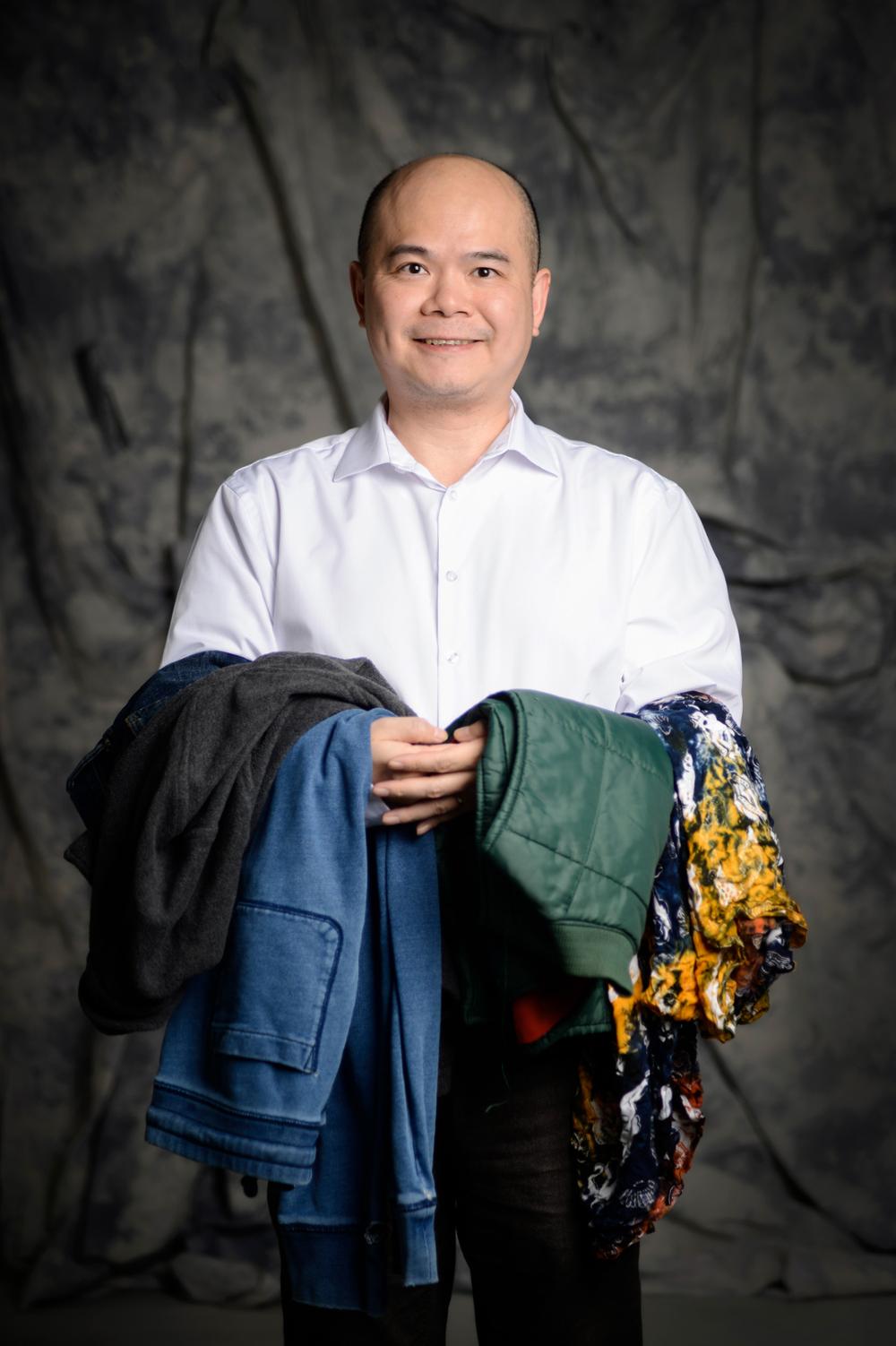U of R researcher receives federal funding to help divert clothing from Canadian landfills
The rise of fast fashion makes it easy to discard clothes and buy new ones. Canadians throw out more than one million tonnes of clothing and textiles every year – which puts serious strain on Canada’s waste management system.
To create a viable engineering and business management framework to collect, process, and recycle clothing and textiles, University of Regina engineer Dr. Kelvin Tsun Wai Ng received a $500,000 Discovery Grant from the Natural Sciences and Engineering Research Council (NSERC).
“My goal is to create an evidence–based policy and a comprehensive circular economy framework in the fashion industry, helping to cut down on how much ends up in our landfills,” says Ng, a professor in the environmental systems engineering program.

Dr. Kelvin Tsun Wai Ng says that better managing clothing and textiles domestically will help support a healthier circular economy. Credit: U of R Photography.
Ng’s award was part of a larger national announcement where U of R researchers received $3,442,500 in total funding.
Ng says more than a framework is needed and that societal, environmental, cultural, health, and economic values are all interconnected in clothing and textile waste – which is why his project involves collaborators in engineering, textiles, human ecology, social and behavioral sciences, and business.
“Socio-economic barriers also need to be addressed, including the social stigma of second-hand clothing, the low value that’s placed on the aesthetic appeal of used clothes, as well as how they’re perceived simply because they often cost a lot less than new clothing,” says Ng.
Ng and his collaborators will develop an interactive Canadian thrift-store database and create a machine-learning model on clothing and textile recycling behaviours. Their ultimate goal is to create a waste-management framework that will include recommendations and guidelines for policy-makers, improving environmental sustainability in Canada.
“By better managing clothing and textiles domestically we can support a healthier circular economy. Doing this will reduce waste heading to our landfills,” says Ng.
Dr. Chris Yost, University of Regina Vice-President (Research), says U of R researchers are making impactful contributions to the United Nations Sustainable Development Goals (SDG).
“For example, Dr. Ng, in developing a better model for sustainable clothing and fabric, is directly responding to UN SDG 12 – Responsible Consumption and Production,” says Yost. “Our scholars are committed to conducting research that supports our collective health, well-being, and environment. Through their work, they are helping to ensure a more sustainable and healthy society.”
A full list of the researchers and their projects is provided in the media backgrounder.
Suggested cutline for photo (see Media Resources sidebar for a higher resolution file): Dr. Kelvin Tsun Wai Ng says that better managing clothing and textiles domestically will help support a healthier circular economy. Credit: U of R Photography.
- 30 -
About the University of Regina
Set in the heart of the Canadian prairies we are a comprehensive, mid-sized university where the opportunities are as limitless as the horizon. Our campuses are on Treaty 4 and 6 - the territories of the nêhiyawak, Anihšināpēk, Dakota, Lakota, and Nakoda peoples, and the homeland of the Michif/Métis nation. It is our responsibility to strengthen relationships with Indigenous communities to build a more inclusive future for all. Our three federated colleges, 10 faculties, 25 academic departments, and 18 research centres foster innovative research with practical and theoretical applications. We are committed to cultivating the potential of our 16,700 students and supporting their health and well-being. We take learning beyond the classroom through work and volunteer experiences to develop career-ready graduates.
Let’s go far, together.